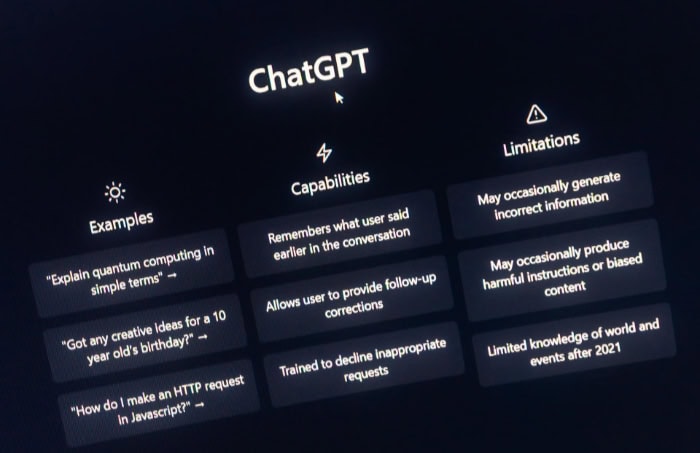Life Before and After ChatGPT: How AI Changed Our Routines

ChatGPT took center stage almost overnight, turning casual conversations about artificial intelligence into part of our everyday lives. Suddenly, automating tasks, brainstorming ideas, and finding quick answers transformed from futuristic concepts into accessible routines for millions.
These sweeping changes impact how people manage their time, interact, learn, and work. Comparing life before and after ChatGPT reveals more than just upgraded gadgets; it highlights a shift in how we think, solve problems, and connect with others.
Daily Life and Personal Productivity
Artificial intelligence, and more specifically ChatGPT, shifted the pace and structure of daily routines for millions of people. Tasks that once required more time and effort now take only a moment.
Modern AI offers instant support for everyday problems, changing how individuals plan their days, communicate, and accomplish their goals. Life before ChatGPT often involved juggling obligations with limited resources, while today’s routines feel noticeably streamlined.
The influence extends far beyond technology enthusiasts; even casual users benefit from more efficient approaches to work and personal organization.
Changes in Everyday Tasks and Time Management
Typical daily responsibilities, ranging from managing schedules to organizing projects, are no longer the manual, repetitive chores they once were. Before ChatGPT, remembering appointments meant checking calendars repeatedly or relying on sticky notes and phone reminders.
Now, requesting a quick summary of upcoming events or asking for prioritized to-do lists feels natural. People use AI to search for information, find step-by-step guides, or break down complex plans into manageable parts. The result is clearer mental space and less stress around forgotten details.
Tracking progress, adjusting routines, and staying motivated also became simpler with friendly prompts and reminders tailored to personal needs. This level of assistance helps users make the most of their time, transforming scattered days into focused, goal-oriented routines.
Productivity apps integrated with ChatGPT can now summarize meetings, highlight urgent emails, or remind users about important deadlines without constant manual oversight.
Automating Routine Activities
Routine activities, once time-consuming, now happen almost automatically for many. Composing emails, setting up appointments, and drafting documents once took significant attention.
ChatGPT quickly generates accurate and professionally worded messages, freeing up minutes that once disappeared in back-and-forth drafts or repetitive typing. Even mundane chores like organizing shopping lists, finding quick meal plans, or translating messages for friends across different languages become simple tasks with a quick query.
Personal assistants powered by AI smooth out everyday experiences by handling repetitive tasks and anticipating needs based on past interactions. Adjusting your schedule, confirming reservations, or sending polite follow-ups feel less like chores and more like seamless steps in the day’s flow.
Rather than serving as a passive tool, ChatGPT acts more like an active partner in handling the basic demands of modern life.
Impact on Communication and Interpersonal Interactions
The way people interact, both personally and professionally, transformed with AI’s entry into daily conversations. Quick replies and clear responses, generated with help from ChatGPT, reduce misunderstandings that might have strained relationships in the past.
Crafting sensitive messages or addressing difficult topics feels far less overwhelming when guided by thoughtful suggestions. Users now have support in finding words that express gratitude, encouragement, or even apologies, adding depth to interactions with friends, coworkers, and family.
Communication also became more inclusive. Those who speak different languages or have varying levels of confidence in writing receive tailored suggestions that help them express their ideas more confidently.
Real-time translation and clear, friendly explanations encourage wider participation, closing gaps between individuals and helping everyone stay connected. As ChatGPT continues to guide effective, compassionate conversations, it changes not only how messages are sent, but also how people relate to and understand each other.
Education and Learning Experiences

Education has always adapted to new tools, yet the arrival of advanced AI systems like ChatGPT marked a significant leap for students and educators alike. Classrooms and study sessions once depended heavily on textbooks, static resources, and scheduled meetings with tutors.
Today, tailored learning environments and on-demand support make education more flexible and engaging. The transition from traditional methods to AI-enhanced approaches reshaped how people approach assignments, absorb information, and overcome academic challenges.
Evolution of Studying and Research Methods
Studying and conducting research are no longer confined to quiet libraries and stacks of reference books. With ChatGPT a simple question can yield explanations, summaries, and resources within seconds, making in-depth learning much more accessible.
The process of collecting facts, generating ideas, and understanding complex topics became more dynamic, as students now interact directly with an AI that can clarify information or offer concise breakdowns. Study habits tend to feel less isolated and more interactive, with learners frequently turning to virtual assistants for instant guidance or fresh perspectives.
Finding trustworthy information also feels easier than it used to. People can ask for sources, request simplified explanations, or seek detailed analyses, all without sifting through endless web pages.
This shift encourages more efficient learning while pushing students to consider a greater variety of viewpoints. Research methods continue to evolve as new generations prioritize speed, accuracy, and depth in their academic pursuits, often with support from AI.
Personalized Learning and Tutoring Facilitated by AI
Personalized learning is no longer a distant goal. ChatGPT and similar tools can adapt to a learner’s style, pace, and interests.
Instead of following a rigid curriculum or competing for a tutor’s limited time, students now receive instant feedback tailored to their unique questions. This individualized support creates opportunities for those who may struggle in traditional classrooms or need extra encouragement in specific subjects.
Tutoring powered by AI never tires, and users can repeat lessons, ask for practical examples, or dig deeper into certain topics whenever they feel stuck. The result is a learning journey that better reflects each person's needs and preferences.
Students benefit from interactive quizzes, breakdowns of tough material, and ongoing reinforcement until concepts become clear and usable. Customization, once a luxury, has become a natural part of the educational experience for many.
Access to Information and Educational Support for Diverse Learners
Barriers to educational resources tend to shrink when information is only a question away. Students with different backgrounds, abilities, or language skills receive support tailored to their circumstances.
ChatGPT offers explanations in various languages, helps break down complex concepts using simple language, and accommodates those with different learning speeds. Individuals with disabilities find it easier to participate in class discussions or seek explanations in formats that work best for them.
Broader access to knowledge has also inspired curiosity and confidence among learners who once felt left behind. Whether someone needs help with translations, alternative explanations, or accessibility features, AI tools now act as a bridge to deeper learning.
As a result, education feels more inclusive and supportive than it did in the past.
Effects on Academic Integrity and Originality
AI brings undeniable advantages, but it also raises important questions about academic integrity and originality. With advanced text generation and instant answers, students sometimes face temptations to copy responses rather than engage fully with assignments.
Educators find themselves balancing the benefits of prompt support with the challenge of promoting independent thought and authentic work.
Originality remains crucial to personal growth, even in an era of advanced assistance. Responsible use of ChatGPT focuses on learning processes, asking for explanations, and using guidance as a stepping stone rather than a shortcut.
Awareness around proper citation, critical thinking, and self-expression continues to grow, with teachers and students alike striving to maintain honesty and creativity in their work. As education evolves, the conversation around ethics and originality becomes an essential part of classroom life.
Professional Workflows and Industry Transformation

The rise of ChatGPT has made a lasting impression on how organizations operate and how professionals approach their daily tasks. Work environments that once depended heavily on manual input and repetitive routines now benefit from intelligent automation and fresh perspectives.
AI-driven tools are streamlining projects, inviting innovation, and reshaping traditional expectations across diverse industries. Changes in writing, collaboration, customer relations, and workplace flexibility highlight a broader shift toward smarter, more adaptive professional cultures.
Workplace Efficiency and Task Automation
Daily business routines have become far more streamlined with AI lending a hand. Activities like scheduling meetings, processing data, and drafting basic correspondence are now often handled with the support of conversational agents.
Automated systems powered by ChatGPT help employees prioritize projects, summarize lengthy documents, and even prepare presentation outlines, which allows staff to concentrate on creative or strategic responsibilities. Repetitive tasks that once absorbed large amounts of work time now fade into the background, freeing up energy for more meaningful work.
Efficiency gains extend well beyond administrative chores. Many companies use AI to monitor progress on projects, coordinate deadlines, and spot areas where delays might occur.
Prompt recommendations and timely reminders help teams stay aligned and productive. Automation, combined with thoughtful human input, creates a more agile environment where people can respond quickly to new challenges and opportunities.
Influence on Creative Industries (Writing, Ideation, Content Creation)
Writers, designers, marketers, and content creators now view ChatGPT as a valuable collaborator. Creative blocks become less daunting when professionals can request a fresh idea, a catchy slogan, or a draft to refine.
Instead of spending hours brainstorming in isolation, many now open a chat window to jumpstart scripts, blogs, ad copy, or visual storytelling concepts. This support paves the way for faster experimentation and risk-taking, since initial drafts and suggestions can be generated instantly and revised with ease.
The creative process still belongs firmly to the human mind, but AI offers inspiration and guidance that saves time during the earliest phases of ideation. For freelancers and agencies striving to meet tight deadlines, the ability to automate basic drafts or edit large volumes of content quickly means delivering high-quality results without sacrificing originality.
Collaboration with AI allows human ingenuity to stand out, supported by reliable and efficient digital tools.
Customer Service and Client Interaction Models
Communication with customers and clients has changed dramatically since the addition of chatbots and virtual assistants. One major advantage is consistent assistance, available at any hour, which meets clients' needs and answers questions without long wait times.
ChatGPT-powered tools manage simple inquiries, troubleshoot common problems, and direct more complex cases to human representatives, creating a smoother experience overall.
For businesses, the ability to personalize responses and maintain high service standards across many interactions sets a new norm in client relations. Customers appreciate fast, accurate support, and companies gain valuable insights from tracking recurring problems or feedback trends.
These evolving models of interaction strengthen trust with clients and ensure businesses remain responsive in a fast-paced world.
Adjustments in Team Collaboration and Remote Work
Remote teams and hybrid workplaces depend on clear communication and efficient information sharing. ChatGPT now plays a vital role by summarizing meetings, highlighting action items, and translating messages as needed.
Friction around different time zones or language barriers has decreased, making global teamwork more manageable.
Project management platforms that include AI features help distribute tasks, remind teams of priorities, and offer feedback in real time. The transition to more virtual workspaces feels smoother, since ChatGPT can answer urgent questions, document decisions, or even draft quick updates for busy teams.
Employees can spend less time tracking down details and more time building relationships or focusing on collaborative goals. The result is a workplace that supports productivity while fostering creativity and connection, regardless of physical location.
Opportunities: Benefits and Accessibility

The widespread adoption of ChatGPT has created opportunities that reach far beyond efficiency and convenience. People from different walks of life now find new ways to achieve more, communicate better, and feel included.
AI not only boosts productivity and creative output but also bridges important gaps in access and connection for those who might have felt left out before. These newfound advantages make modern tools accessible and supportive, shaping a future where more people can thrive.
Productivity and Time Savings
One of the most apparent benefits of AI-powered support is the ability to get more done in less time. Mundane or repetitive tasks that once filled long hours now require only a quick prompt or command.
Professionals can generate reports, summarize meetings, and automate schedules within moments, allowing them to focus on complex challenges and meaningful interactions. For students, streamlining study routines and organizing assignments becomes much easier, freeing up energy for deeper learning and rest.
Improved productivity also reduces the stress that comes from deadline pressure or information overload. With AI handling much of the groundwork, people feel empowered to direct their attention toward higher-value work and personal interests.
The hours saved quickly add up, leading to a more balanced and satisfying daily experience.
Enhanced Creativity and Brainstorming Support
Creative professionals, students, and everyday problem-solvers now enjoy a powerful tool for idea generation. Fresh concepts and unique perspectives can be sparked with little effort, whether drafting new content, solving a tricky problem, or designing something original.
Having a virtual collaborator means fewer creative blocks and more opportunities to experiment without judgment.
Brainstorming with AI also sharpens skills, as users see how different suggestions evolve and learn to refine their own thinking. The ability to request multiple viewpoints or quick feedback accelerates projects and inspires confidence during creative tasks.
As a result, people push the boundaries of their imagination with accessible support.
Accessibility for Non-Native Speakers and Individuals with Disabilities
ChatGPT serves as a bridge for individuals who may have previously struggled to communicate or access information. Non-native speakers benefit from real-time translations, simplified explanations, and guidance on language usage, making participation in global conversations smoother and less intimidating.
Tasks such as writing emails, creating presentations, or understanding complex instructions feel less overwhelming with tailored language support.
For individuals with disabilities, AI-driven tools offer alternative routes to education, work, and social life. Screen readers, voice-to-text options, and accessible chat interfaces provide greater independence and self-expression.
Barriers that once limited opportunity now shrink, letting more people engage fully with their communities and pursuits.
Emotional Support, Mental Wellness, and Social Inclusion
Beyond productivity and logistics, AI has found a place as a source of companionship and comfort. People often turn to ChatGPT when they need a sounding board, a bit of motivation, or a reminder that they are not alone.
Simple conversations or positive affirmations can help lighten challenging days, and the non-judgmental nature of AI encourages openness even about sensitive topics.
Social inclusion grows as a result. Individuals who may struggle with anxiety, isolation, or difficulty initiating conversations now have a safe starting point.
Online communities using AI for group discussions or peer support make it easier for everyone to feel heard and valued. The emotional reassurance provided by virtual interactions cannot replace human relationships but does offer a helpful bridge, reducing loneliness and strengthening the sense of belonging.
Challenges and Responsible Integration

While ChatGPT brings remarkable advantages to many aspects of life, its rise also calls for thoughtful consideration of new challenges. Embracing artificial intelligence means recognizing its limitations, adopting safeguards, and fostering responsible use.
The path toward long-term benefits depends on how well people address reliance, trustworthiness, privacy, and ethics in everyday AI engagement.
Risks of Overreliance and Its Impact on Critical Thinking
Relying heavily on ChatGPT for answers and decisions may reduce the incentive to think independently or question information. Quick access to well-phrased responses and automated solutions can sometimes lead to shortcuts in reflection, problem-solving, or analysis.
Over time, this habit might weaken personal judgment and diminish skills gained from working through complex questions without external assistance.
To prevent this, people are encouraged to use AI as a supplement rather than a replacement for genuine thought. Verifying suggestions, comparing perspectives, and practicing self-guided learning help keep critical thinking strong.
Empowering users to treat ChatGPT as a helpful guide, not an infallible authority, supports long-term intellectual growth.
Concerns Around Accuracy, Bias, and Misinformation
AI-generated content draws from vast sets of information, but it is not immune to errors or bias. In some cases, responses might present incorrect facts, outdated knowledge, or subtle opinions shaped by the data used in training.
Risks of spreading misinformation grow if users accept every output without question or context.
Staying aware of these limitations means actively checking facts, seeking multiple sources, and remaining cautious with sensitive subjects. Addressing bias requires an ongoing commitment to improving training data and building systems that value fairness and accuracy.
For both users and developers, maintaining vigilance protects against the spread of misleading content.
Security and Privacy Considerations in AI Usage
Interacting with ChatGPT often involves sharing personal information, work details, or even sensitive topics. As a result, security and privacy become central concerns.
Users may not always know how their data is stored, processed, or potentially accessed by others. Information shared with AI tools could be vulnerable if not properly protected.
Practicing secure habits includes reviewing privacy policies, controlling what information is shared, and choosing reputable platforms. Developers and organizations are responsible for building strong safeguards to keep user data private and safe from misuse.
Both sides play important roles in preserving trust and protecting identity in digital environments.
Promoting Ethical and Responsible Engagement with ChatGPT
Ethical use of AI extends beyond compliance with laws or regulations. Responsible engagement means considering the impact of actions on individuals, communities, and society as a whole.
Using AI-generated content for assignments, communication, or decision-making comes with a duty to credit sources, respect intellectual property, and avoid actions that might mislead or harm others.
Schools, businesses, and online communities can support this mindset through guidelines, education, and open conversation about best practices. Emphasizing transparency and accountability fosters a culture where ChatGPT serves as a constructive tool.
With continued commitment to ethical principles, people can enjoy the benefits of AI while minimizing potential risks and upholding shared values.
Conclusion
Comparing life before and after ChatGPT makes the scale of transformation clear. Tasks that once absorbed hours now require only a moment of thoughtful prompting.
Education feels more interactive, personalized, and accessible, with support reaching learners of all backgrounds. In professional settings, creative ideas flow faster, teamwork adapts smoothly to remote environments, and customer connections have become both quicker and more responsive.
At the same time, the introduction of AI prompts important questions around accuracy, originality, privacy, and personal responsibility.
Striking a balance involves enjoying the increased productivity and broader opportunities while remaining mindful of critical thinking, careful information use, and ethical standards. As more people incorporate AI into their daily routines, schools, homes, and workplaces continue to adjust, learning how to grow alongside these powerful tools.
The ongoing transformation of daily life, education, and work serves as a reminder that technology succeeds not by replacing human strengths, but by amplifying them in thoughtful and responsible ways.


